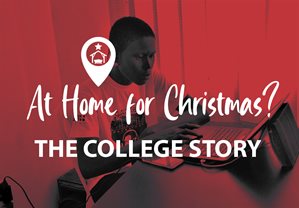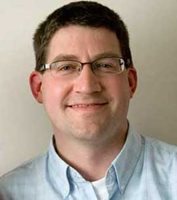Watching to gain a wider experience of the world
My father always says watching TV educates. By this, he means, not that all programmes are equally educational, but that if you choose your programmes wisely, with the right intention, then TV can be a great source of learning. And yes, he will say the same about newspapers and books.
The point he is making is that you can experience the world from the comfort of your home. You can hear the voice of people and experts from around the globe. You can listen to a different perspective on global problems, as well as on local issues. Hearing other voices can be highly educational, especially in seeking a better understanding of the things around us. Engagement improves if we seek to learn. If we seek a window into new perspectives. If we engage with others and see their world through a different lens and a different culture.
Mission gives us new eyes
Even better than watching TV is travelling. And even better than travelling is living away from home. Mission works best if we immerse ourselves in a new home away from home. This cultural immersion describes the long term mission strategy of our church. In following it, we are gaining new perspectives both on our culture and our host's culture. Mission is ultimately a privilege, seeing how God's Spirit leads God's people to find creative answers to their contextual challenge. Often there is more than one way of doing things, not just a right and wrong way, but different ways to reach a goal.
Beyond the way we have always done things
A few years ago, my sister moved to a different city to study. One day in the kitchen of her student dorm she was asked by an observant student why she always put a pot filled with water on the stovetop after using it. After a short reflection, she said, "I don't know. That is how we always do it at home." And this is indeed how we did it at home. She called my mother and asked why? My mother explained that when we were small, she put a pot with cold water on the stovetop to prevent our little, curious hands from burning ourselves on the stovetop. The pot is a simple and effective method to cover the danger of a hot stovetop.
But then it took on a life of its own. Strangely, 20 years later, not only was my mother still doing it but all her children ‘learned’ to do it as well. Once we understood why we did it, we stopped doing it, as the stovetop was no longer a danger for our little, curious hands! The context had changed, we had learned not to touch the hot stove, and so there was no need to follow the old ways. Changes in the context as well as in our understanding should help us to determine if we need to adjust our current approach. Perhaps there is a better way of doing things.
Losing the practical in our theology?
 One of the challenges of equipping church leaders in the mission field since the start of the modern foreign missionary movement in the 19th century was how to train church leaders as well as how to prepare the wider church.
One of the challenges of equipping church leaders in the mission field since the start of the modern foreign missionary movement in the 19th century was how to train church leaders as well as how to prepare the wider church.
In Ireland and the western world in general, three ideas converged: full-time paid ministry, residential training and higher education. These then became normative. This development, unfortunately, coincided with the rise of the fragmentation of theological education, which resulted in the underdevelopment of practical theology. Practical theology was supposed to hold the theological curriculum together in the training of ministers.
Around the same time, the theological college became the home for training. Christian ministry was delegated to the professional clergy, and academic degrees became the standard. Monologues became the primary way to teach. Other, older, methods of training were forgotten. At the same time, new forms of theological education were envisioned to suit new contextual challenges.
Theology at home
However, other forms of theological education existed before, and continue to exist today. Here in Malawi as well as in South Africa, the two places where I am mostly involved in theological education, we use a de-centralised form of training which can be described as doing theology at home, not at the college.
The emphasis is on dialogue and discussion, as it helps comprehension. The vision for this approach grew out of a small Presbyterian church in Guatemala where older diverse forms of training were still remembered. The college goes to the home of the student. The learner stays within the support of his or her community. This approach dramatically improves the development of practical ministerial skills, however, it is often driven by practical and financial
consideration, because learners cannot afford to move to a residential college due to family and work commitments. At other times their spiritual recognition and qualification are not matched by entrance requirements, like A-Level grades. The theological motivation for de-centralised training aims for higher and consistent integration of practical ministry skills in the training. Again, it revolves around God's Spirit leading God's people to find a creative new solution for their changing context.
Finding depth and reality in God’s Word as it comes close to home
Recently, we met with a small group of elders for some joint guided Bible reading training. One of them, let's call him Kapeni, commented on the creation story and how extraordinary it is that God delegated the responsibility for all he had made to humanity. In Kapeni's words, how incredible that God did not hold on to authority, but freely shared it. Kapeni is an elder who worships in a very hierarchical church where power is concentrated on the pastor.
My Old Testament PhD includes these creation stories, and yet, in all my readings, I have not found that idea expressed by any scholar. A Malawian elder, reflecting theologically on the contextual challenges found something deep and real about the very nature of God. This gives me great hope that God's Spirit indeed leads God's people to find creative new insights for the contexts in which they serve.
 Volker Glissmann is PCI global mission worker serving in Malawi. You can read more about Volker's work here.
Volker Glissmann is PCI global mission worker serving in Malawi. You can read more about Volker's work here.
You can find more about the At Home at Christmas? campaign and other Christmas Resources for churches to use here.